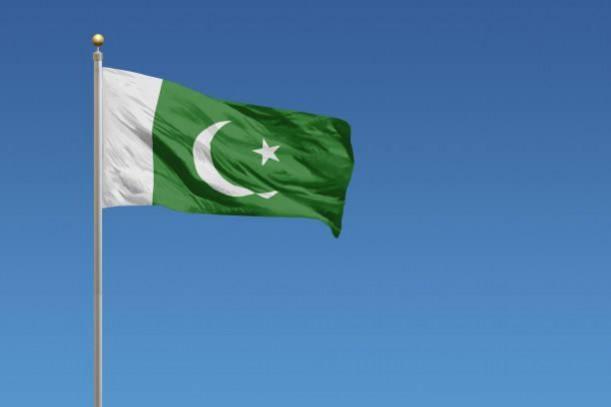In a major development, Armenia recently claimed that it "can't exclude the possibility" of Pakistani fighters on the ground fight along with "mercenaries operating in Azerbaijan".
Armenia's Deputy Foreign Minister Avet Adonts speaking exclusively to WION on Thursday, said," It won't be a surprise for us", recalling how in the 1990s, Pakistani nationals were present when war broke in Nagorno Karabakh.
He also slammed Turkey for sending Jihadis to Azerbaijan explaining "this imposed or instigated war" has been "well planned jointly with Turkey".
Armenia vs Azerbaijan

Clashes have broken between Armenia and Azerbaijan in past few days over Nagorno Karabakh region leaving several dead and fears of spillover in the region. Border clashes broke out early Sunday when the Armenian forces targeted Azerbaijani civilian settlements and military positions, leading to casualties.
Relations between the two former Soviet republics have been volatile since 1991 when the Armenian military occupied Upper Karabakh, an internationally recognized territory of Azerbaijan.
World powers, including the US, Russia, France and Germany, have urged an immediate halt to clashes along the frontier. Turkey, meanwhile, has voiced support for Azerbaijan's right to self-defense.
Four UN Security Council and two UN General Assembly resolutions, as well as many international organizations, demand the withdrawal of occupying forces. The OSCE Minsk Group -- co-chaired by France, Russia, and the US -- was formed in 1992 to find a peaceful solution to the conflict, but to no avail. A cease-fire, however, was agreed to in 1994.
PAK - the troublemaker

On Tuesday, some Indian media outlets reported that Pakistani soldiers are fighting along with Azerbaijani troops against the Armenia aggression.
The Pakistan Foreign Ministry on Friday, however, refuted the Indian media reports claiming that the country's army is fighting alongside the Azerbaijani forces against Armenia over the occupied Nagorno-Karabakh, adding that such reports are "irresponsible, speculative and baseless"
Rather the ministry reiterated its country's position on the issue, stated Pakistan is deeply concerned over the deteriorating security situation in the Nagorno-Karabakh region.
"The intensive shelling by Armenian forces on civilian populations of Azerbaijan is reprehensible and most unfortunate. This could compromise peace and security of the entire region. Armenia must stop its military action to avoid further escalation," said the statement.
"Pakistan supports Azerbaijan's position on Nagorno-Karabakh, which is in line with the several unanimously adopted United Nations Security Council resolutions," the statement added.
But Adonts stressed that Turkey has been the single country that has supported Azerbaijan in it, within this development, both with its military as well as political support, along with Pakistan.
"Many medias are reporting, Pakistani fighters have left Pakistan, and again via Turkey they have reached Azerbaijan to join the mercenaries operating in Azerbaijan. It won't be a surprise for us. Practically it will be proven very soon," Adonts said further.
Unfortunately, such a scheme of tactics is not new to Pakistan. This is how the country even messes up India and Afghanistan with its terror modules and support.
![[Representational image] Taliban](https://data1.ibtimes.co.in/en/full/627666/taliban.jpg?h=450&l=50&t=40)
The global community has long been frustrated with Pakistan's persistent acquiescence to safe havens for the Afghan Taliban and its vicious Haqqani branch in Pakistan (both of which benefit more from misgovernance in Afghanistan, but Pakistan's aid helps a lot).
Worse yet, Pakistan has provided direct military and intelligence aid to both groups, resulting in the deaths of US soldiers, Afghan security personnel, and civilians, plus significant destabilization of Afghanistan. The March 25 Kabul Gurudwara attack was also carried out by ISKP (Islamic State of Iraq and the Levant—Khorasan Province) – an extended arm of the Islamic State, but controlled by the Pakistan-based Inter-Services Intelligence (ISI).
Pakistan has long been a difficult and disruptive neighbor to Afghanistan, hoping to limit India's influence there, and cultivating radical groups within Afghanistan as proxies. It has augmented Afghanistan's instability by providing intelligence, weapons, and protection to the Afghan Taliban and the Haqqani network.
Why does Pakistan act this way? It fears an unstable Afghanistan that becomes a safe-haven for anti-Pakistan militant groups and a dangerous playground for outside powers (even though this has already happened). Pakistan bets that the Taliban will maintain significant power in Afghanistan—and perhaps even obtain formal political power—and does not want to alienate it. After all, the Taliban is Pakistan's only—however reluctant and unhappy—ally among Afghanistan's political actors.
Pakistan further fears that targeting Afghanistan-oriented militant groups will provoke retaliation in Pakistan's Punjab heartland. Its long refusal to fully sever support for these groups is a product of Pakistan's lack of full control over the militant groups it has sponsored, even though it is loath to admit it. Such disclosure of weakness would be costly: reducing the omnipotent image of Pakistan's military-intelligence apparatus with respect to varied domestic audiences, including opposition politicians, and further encouraging misbehavior of militant groups. And while such disclosure may somewhat reduce international pressure on Pakistan, it would also weaken Pakistan's hand in international bargaining.
Pakistan is also afraid of a strong Afghan government aligned with India, potentially helping to encircle Pakistan. In his August 2017 speech on Afghanistan, President Trump invoked the India card to pressure Pakistan—calling for greater Indian engagement in Afghanistan, though cushioning it by mostly endorsing India's economic engagement there. That is not likely to moderate Pakistan's behavior. Instead, it can increase Pakistan's paranoia of India's engagement in Afghanistan, including its perceived support for Baluchi separatist groups in Pakistan. After President Trump's speech, senior U.S. officials sought to mitigate such fears, recognizing Pakistan's legitimate interests in Afghanistan and saying that the United States was keen to see (and could facilitate) an improvement in India-Pakistan relations.








